Do you value P4C but struggle to fit it in?

You know enough about P4C to think it would be good for your school. But there are obstacles to implementing it. The traditional method, stand-alone sessions of around one hour, won’t fit your timetable. Teaching staff, already under pressure, are wary of taking on “yet another thing”, and don’t feel they are ready to plan and know that they are “doing it right”. So how can you support colleagues to make P4C work with your existing curriculum?
Introducing Philosophy Circles: How to Embed P4C in the Curriculum
Monday 26th June, Islington, London
This full day course with both Jason and Tom will help you grasp the principles of Philosophy Circles, put them into practice, and share them with your colleagues. It includes over 100 primary topic session plans and other resources that will allow your school to embed philosophy from Reception to KS3.
Help children find their voices
More and more children arrive in reception scarcely talking at all
Parents distracted by social media speak less to their children, and the impact is growing. In one school with many younger parents, children joining reception completely nonverbal rose from five, to half to the class.
If they don’t learn to talk confidently to groups in their primary years, it’s unlikely they ever will. That impacts their learning, and their economic and social wellbeing. You’ll learn how to overcome the different obstacles children have to speaking, and get (almost) every child talking:
- Playground Confident, Classroom Shy – how to empower children who clam up in the classroom
- Feed Forward: a simple change to give speech-poor children time to catch up
- Chance, Chain, Choose – how to reduce inequality in the classroom
- Separating Thinking and Speaking – how to beat the “I dunno” card
- Unwrongification – how to free children from the fear of getting it wrong
- Small Talk Big Talk – how to keep them talking while raising the stakes
Children speak best when they are standing up
They don’t go to dinner parties or sit around in the pub. The Get Moving activities explained in this course get children talking from the first minute. Learn how this high-energy approach works, so that you can engage your learners in talk not just in philosophy but across your teaching.
- How to make thinking a game by making it physical
- Community-building activities to help your class collaborate
- How philosophy playfulness leads to “deep fun”
- How to create shared experiences that stimulate thinking
- Argumentag and other debate games that build confidence
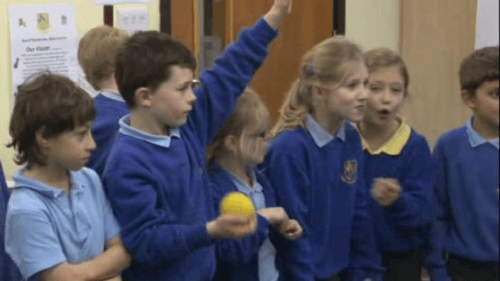
Y-Questions that stretch but don’t scare
Less confident speakers can fear speaking in class in case they get it wrong. That freezes their speaking while more confident children do the talking and speed ahead. The Y-Questions at the heart of Philosophy Circles are difficult to decide and hard to be sure of. This allows less confident learners to feel they won’t get it wrong, while giving a greater challenge to able children who are used to getting it right. In the course and supporting resources, you’ll learn:
- Why closed questions can be better than open ones
- How to find stimuli that encourage thinking, but don’t say what to think
- How Philosophy in Role in your topics engages children’s imaginations
- How children can create their own Y-Questions – and when to use your own
- How children can tell stories that enrich their thinking and writing
It has been fascinating to watch the children engage with a range of challenging topics with maturity, enthusiasm and empathy thanks to the facilitation provided by Tom. Their curiosity was inspired by the thought-provoking stimuli in each session and several individuals, who usually find it challenging to share their ideas, came to the fore during the big discussions.
Pupils comment that they are thoroughly enjoying P4C and enthusiastically anticipate their lessons with Tom each week; they also site that ‘they enjoy the challenges to their thinking.’
Since commencing P4C, we have noticed a dramatic increase in the children’s ability to discuss concepts with their peers and they have vastly improved in their ability in looking at one another when speaking, in actively listening to one another and in building upon and challenging others’ views and opinions. Before the lessons started, the children were not listening deeply to one another and responding to one another constructively – they had their opinion and that was it. We have also noticed an increase in confidence and concentration.
Initially, the children tended to direct their responses towards the adult. After a couple of weeks however, they were looking at the child they were responding to and dialogue bounced around the room without adult intervention.
The children’s critical reasoning skills were also developed; children were starting to support their views with reasons.
Enquiry based methods are also being instigated by the pupils themselves in other curriculum areas:
- Who is the villain in Macbeth?
- Who is responsible for King Duncan’s death?
- Was the Highwayman guilty of any crime?
- Is jealousy an acceptable motive for murder?
- Can murder ever be justified?
As teachers, we are excited about working elements of P4C into our day-to-day classroom practice, particularly when creating and discussing questions during class reading sessions.
Shareen Johnson and Jonathan Hall, Amesbury Primary School
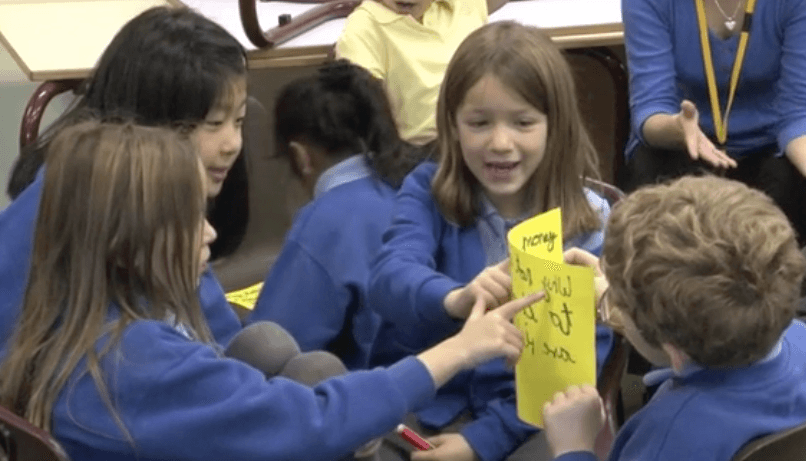
What do other teachers say?
After the workshops, I interviewed some children about their experience. I deliberately picked children who really struggle with the academic side of school life. One child, who had a workshop on bargaining for his life against a Mayan tribe, said “I loved the P4C workshop. It was so much fun to think of reasons why my life was valuable and the best part was, we didn’t have to do any work!”. The children saw the workshops as a chance to express themselves.
Sarah Brown
Dulverton Primary School
It made me think, ‘this is what I want my teaching to be’. There wasn’t a single student who didn’t get involved and I also saw kids who’ve been quite de-motivated at times step into the ring looking like intellectual prize fighters! And it was so much fun. Wonderful!
Sara Thorp
Teacher
Practical for Teachers
How planning less gives more space for children’s independence
With the ever-increasing pressure from above, teachers feel more and more accountable for planning every minute of children’s learning. It creates a dependency culture, with children always looking to the teacher. Learn how planning less and letting the questions do the work fosters greater independence and faster progress.
- Scribe, don’t script: how to be at the service of a discussion instead of leading it
- Sessions that support deeper reflection about seasonal events such as Christmas, harvest and Easter
- How to create deep, worthwhile discussions within a 30 minute timetable slot
- Dozens of ready-to-use activities you can adapt for any context
- “Making it real” time within the course to start applying the principles to your teaching
- Simple, memorable principles that connect with your values as a teacher

Go into orbit: why your physical position in the classroom is key – and needs to change more than you’d think
We have to be able to command children’s attention in order to teach. But the techniques which establish our presence work against us when we want children to look to one another for answers. Learn some tested techniques for changing your role in the classroom by something as simple as where you sit.
- How to take a step back and let children develop independence
- How giving children “teacher power” improves discussions
- How to deepen their thinking rather than adding your own
- Forgetful Storytelling – a joyful route to a collaborating class
- How to be a philosophical teacher without having studied philosophy
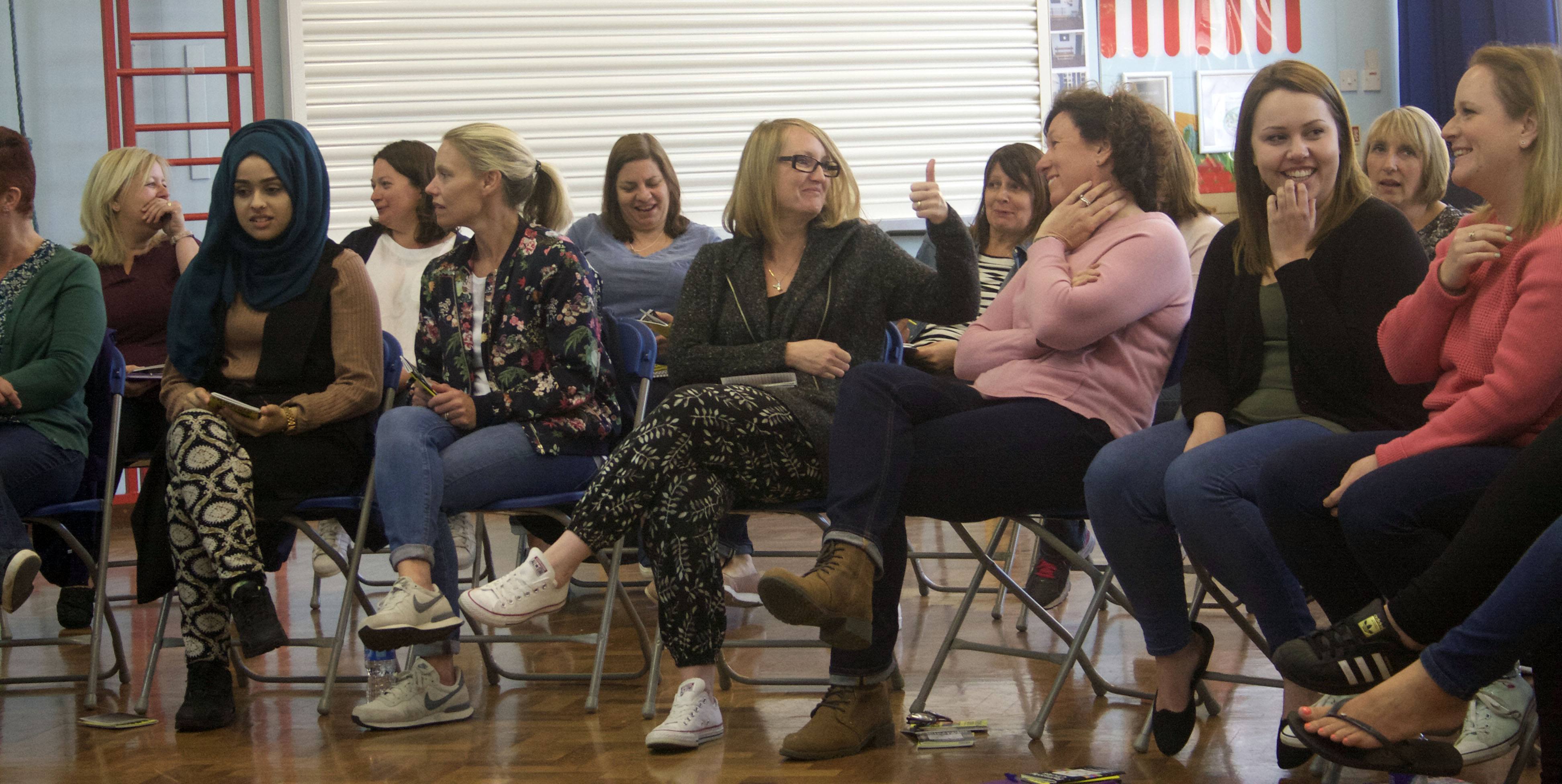
After an inspiring and informative Inset Day, led by Tom, all staff were eager to try out P4C strategies and felt strongly about the principles P4C promoted.
P4C has enabled children to voice their opinions in a calm and controlled manner whilst having their views challenged. It has provided them with time to critically think about their own morals, beliefs and thoughts.
We invited Tom back for Interfaith Day! Through P4C, children naturally made comparisons and built upon their RE knowledge. Children thoroughly enjoyed the current and interactive assemblies, pitched appropriately for each Key Stage.
The weekly bulletins inspire and instigate current discussions with the children which can occur in many curriculum areas. The mini resource booklets are great too as they are concise and clear. The resources are practical, effective and require very little preparation- which is great!
Though we have separate P4C sessions, we have easily and seamlessly begun to use it in other curriculum areas.
Just fantastic!
Kayleigh Dell
Greenway Primary School
Once again, many thanks for an inspiring and encouraging workshop at Harmondsworth School. Personally, I found it useful to build on a shorter workshop ,which I experienced about 3 years ago, but also to see how it can be used in mainstream settings such as ours, as well as with higher achievers .
David Beeston
Teacher, Harmondsworth School
It was great to meet you and work with you today; I thoroughly enjoyed it; I found it engaging and thought provoking. It was super that we had so many opportunities to try out the activities/games etc. The ‘hot off the press’ booklets are such a good idea; I will certainly be reading through mine over the weekend as I intend to try out a game or two with my class next week
Ali Few
Deputy Headteacher, Broomfield School
‘Very active, good clear explanations and stimulating! I’ll use it with my child too, not just in class’
Elena Rodolfi
‘Clear examples of how the program should run. Very practical, hands-on, nice facilitator!’
Isabella Giraldi
‘A great course for anyone needing a new approach to teaching and questioning. It really opens the mind to further possibilities’ –
Jade Jones
‘A thought provoking, worthwhile day!’
Maragret O’Connor
‘Educational, eye-opener, practical and fun. It was practical so I had an opportunity to experience how children would benefit from this activity’ Wema Mwendamseke
‘A great workshop, interactive, filled discussions and stimulating’ –
Siddique Miah
‘Well planned workshop, very interactive and fun. Can be applied to almost all age groups.’
Jane Sparrow
Teaching Staff
Morningside Primary School, Hackney
Engaging, pacy, well-presented and (Tom was) knowledgable. Lots of practical ideas and links to use in lessons. Great delivery, kept us engaged all day.
Adam Dlugoszewski, Whitehouse Primary School
Made enjoyable and memorable by actually taking part in the community tasks. Lots of participation which gives clear examples of how to deliver to children. Opportunities to think and plan for our own year groups. Tom delivered the course exceptionally well – clear and fun!
Delphine Gunn, Tickford Park Primary School
Confident, fluid and entertaining. A very interactive, hands-on and practical. I particularly liked planning sessions within the course.
Caroline Prudence, Two Mile Ash School
A good balance between presenting and lots of practical activities which enabled demonstrations of key concepts. I look forward to starting back in school!
Lucy Eldridge, Two Mile Ash School
Teachers
Milton Keynes Teaching School Alliance
Brilliant! Tom was gentle and inclusive and allowed us all to contribute. Just great! Come and deliver a session in school!
Cathy Kelly, St Thomas Aquinas School
Lots of practical ideas and activities that can be used easily in school. These can easily be adapted to the curriculum already being taught. Tom was very knowledgable and able to adapt ideas and direction of course to answer individual questions.
Karen Bridges, Deputy Headteacher, Green Park School
Tom was very engaging and had a good mix of practical and theory. A thoroughly engaging course with practical elements you can use in the classroom the next day.
Tom Ruffett, Two Mile Ash School
Fantastic training where all staff were highly engaged and are now ready to start the P4C strategies at school. Very well organised, fun for all and lots of ideas to use immediately.
Andrea Wadsworth
Crosslee Primary School, Manchester
‘An excellent way to develop critical thinking and confidence’
Jill Wright
‘An extremely useful session – children need to be critical thinkers’
Sarah Smith
‘Really thought provoking and interesting’
Hannah Thompson
‘A fabulous day that has inspired me to reflect upon everything;
Sophie Rigby
‘Excellent day, very useful, really enjoyed this lesson’Carmaleta Henshaw
Carmaleta Henshaw
‘All very relevant and easy to relate to. A creative way to engage adults and encourage / inspire them to plan differently. Clear progression from Year 1-6’
Sophie Hadwin
‘Great examples given to enable children to become critical thinkers’
Claudia Cotton
Teachers at Whitefield Primary School
I just wanted to drop you a message to say thank you so much for such a fab session on Tuesday. I thought it was informative, relevant and full of very useable practical ideas which will definitely be used in my year two classroom.
Thank you once again.
Sophie Vellacott
Year 2 Teacher, London
‘This was a very active, informative session and has provoked a lot of ideas about how I can implement it in my classroom.’
‘Outstanding presentation.’
‘Great facilitator with lots of energy!’
‘Fab! Lots of hints and tips and great interactive demonstrations. I now feel confident to have a go at implementing in a science lesson.’
‘Absolutely excellent, thank you!”Really brilliant – has given me lots of ideas. Am excited anboit applying these in my classroom.’
Teachers
Lomdon Teachfirst Conference 2016
‘Best INSET ever. Fantastically resourced, well paced and great learning.’
‘Got us all thinking. Lots of brilliant ideas to use in the classroom. Really interactive.’
‘I am going to take up Philosophy! Very thought provoking!’
‘Activities are challenging to the thought process. I intend to use all of them in my teaching.’
‘Excellent ideas to encourage children to think and debate. Also to question their opinions in a safe environment.’
‘Great pace and presentation.’
Teaching Staff
Greenway Primary School
Spreadable to your Whole School
Handouts from training courses often sit in the “INSET graveyard’. It’s full of ideas that sounded great on the day but which never quite got passed on to colleagues. Teachers are very busy, and so new initiatives often get buried under the hectic pace of day to day teaching. To avoid that, the course includes attractive minibooks that are written with busy teachers in mind, and a huge range of resources so that there’s every support for you and colleagues to start straight away: everything you need is provided.
Minibooks that make the key principles easy to absorb
All the key ideas of Philosophy Circles have been carefully constructed around three principles. These are explained in an A6 minibook that is succinct enough for even a busy teacher to find the time to read.
Get Moving – high-energy, active techniques to maximise engagement
Y-Questions – how to find questions that will provide real challenge
Take a Back Seat – how to change your role to give children independence
The book has memory aids in the form of stories, summaries and catchily-named activities so that it is easy for colleagues to make it part of their general teaching style.
You’ll also receive copies of the Thinkers’ Games minibook
- Strategies for making thinking physical to promote engagement
- Techniques and frames for question creation
- Over 30 flexible games that can be adapted for any subject matter
Over 100 session plans for use within the primary curriculum
Most teachers who discover philosophy for children love the idea, but can’t find an hour for a session that does not connect to a crowded curriculum. So P4C gets squeezed out, and children miss out on the chance to deepen their thinking.
This course includes a wealth of resources for 30 minute sessions on the most popular primary school topics. It makes it another, richer way to do what you do already, rather than something else to squeeze in.
Click here to edit Spacer module.
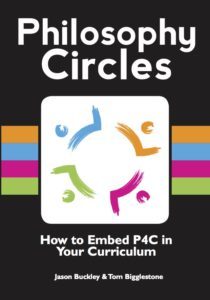
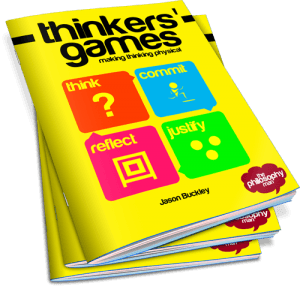
BONUS: Everything you need to run a successful training
Many teachers who are perfectly happy talking to a class o f thirty children are much less comfortable training colleagues. Setting yourself up as “the expert” and sharing what you have only just learnt make you feel something of a fraud.
f thirty children are much less comfortable training colleagues. Setting yourself up as “the expert” and sharing what you have only just learnt make you feel something of a fraud.
During the course, we draw attention to our “tricks of the trade” as trainers. You get access to a set of “Spreadability” audio files with advice on how to run an effective training session with colleagues, as well as a Powerpoint and session plan for a staff meeting introducing the key ideas. With the range of resources included, you can equip everyone with full session plans for immediate use!
Resources
Over 100 session plans with a consistent, easy to follow format, plus a wealth of supporting stimuli and other resources.
English
Nim’s Island
The Snail and the Whale
The Lighthouse Keepers’ Lunch
Fairytales
Myths and Monsters
Poetry
St. George and the Dragon
Harry Potter
t
Science
Senses
Tame and wild animals
Evolution
Living forever
Human development
Mind and body
Seasons
Sound
Sustainability
Working scientifically
Maths
Value
Trade
Numbers
t
History
20th century
Ancient Civilisations
Ancient Egyptians
Ancient Greeks
Anglo-Saxons
Aztecs
Monarchies
Invaders and Settlers
Normans
Romans
Stone Age
Tudors
Victorians
World War One
t
Religious Education
Buddhism
Christianity
Christmas
Comparative Religions
Hinduism
Art, Design and Technology
Painting
Design
Health and Diet
Tools
Computing
t
PSHE
Behaviour
Bullying
Changes and new beginnings
Citizenship
Ethics
Friendship
Mental health
Self-image
t
Geography
Around the world
Rivers
Tourism
Sustainability
t
PE
Teamwork
Over 120 curriculum based session plans
Self- and peer- assessment tools
Training Videos
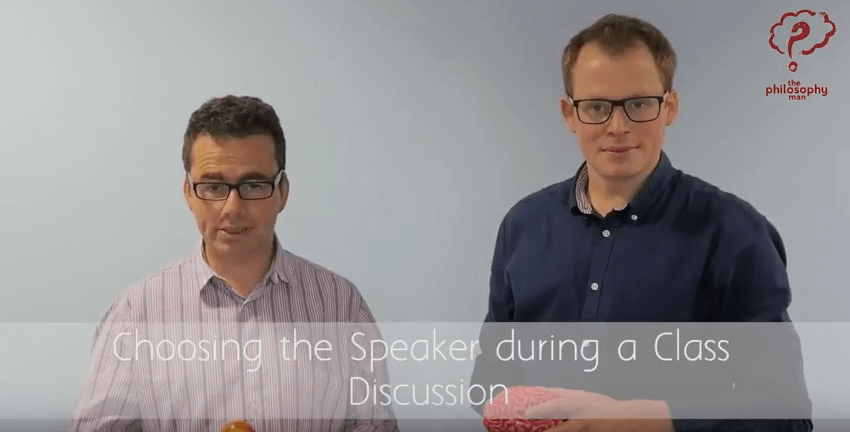
From ‘How-to’ Guides…
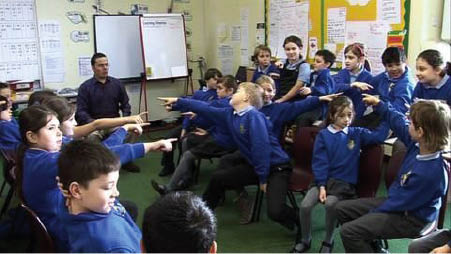
…to enquiry footage with commentary.
These resources inspire and instigate current discussions with the children which can occur in many curriculum areas. The mini resource booklets are great too as they are concise and clear. The resources are practical, effective and require very little preparation- which is great!
Though we have separate P4C sessions, we have easily and seamlessly begun to use it in other curriculum areas.
Kayleigh Dell, Greenway Primary School
What teachers say about our resources…
These resources are absolutely superb. I’ve been trying/failing to use my imagination to get our girls more interested in this kind of thing. After using various books, an outside speaker and my own imagination I’ve made a tiny bit of progress, but your exercises captured the girls’ imagination much more quickly. Great stuff.
Mary
Teacher
Just wanted to thank you for all the resources you have created/sent to me/posted. They’re great and I’m using them weekly with my class.
Debbie Brooks
Can I start by saying how fantastic I think your ideas are – I really enjoy getting your emails and my Y6 class and I have really enjoyed using many of your stimulating resources. Recently, we spent all afternoon philosophising following your ‘should Russia be sent home from the euros?’ stimulus – kept my lively class engaged for hours. So huge thanks!
Jo Lowe
Newlands Primary School
Suddenly remembered that I have an inbox full of your emails and I have found so many good resources for kick starting discussions and debate. I am planning this lessons for year 7 form tutors (mainly PE, Maths and Economics teachers) so it has been really useful to have interesting resources to build on.
Lucy Strike
William Ellis School
There is definitely a buzz with your P4C materials with my current class and colleagues, which is all down to you.
Heather Soar
Handsworth Primary School
Thank you so very much for your wonderful P4C resources. I will prepare the sessions during the summer holidays in case I find another school who would like P4C before then.
These first lesson examples you have so kindly shared will be really useful and I just wanted to say a big thank you to you for your generosity of spirit. This will really help me to get going.
Rachel Hutchings
Kent County Council
I wanted to send you a thankyou as i have bee4n completing a research project in school this year and your emails inspired me to create a philosophy SOW for my year 8s.
Ann Morris
St Ambrose Barlow School
I wish to say a most heartfelt thank you to you as I used some of your exercises as part of a mini project and it has had tremendous feedback both from staff at my school and from tutors at university. I really appreciated you taking time out from your busy schedule to help me. Thank you also for the wonderful resources that you send out, (the doughnut and it’s hole being my current particular favourite – I have even had teachers reading philosophy papers about the concept of holes as a result of this lesson!)
Andrew Lawson
I just wanted to say a huge thank you for your emails, I am finding them to be more useful than the majority of the information that I paid to have access to! I have only just started a P4C group as a volunteer at my children’s school, my enthusiasm is by far more dominant than my experience and your emails are a really valuable guide.
Gemma Soper
I just want to thank you for all the P4C resources that you have been emailing me. Our school uses them regularly as we conduct P4C throughout our primary school from foundation to year 6 once a fortnight. Most of our staff are quite new to P4C so your resources have been greatly appreciated.
Tracey
Athersley South Primary School
A note to thank you for the resources you send weekly. A few years ago I did the SAPRE level 1 P4C course and practiced it for a short while. However my interest has been revamped since recieving your weekly resources and I have now begun to practice it again with the year 6 class that I teach once a week. I am now in senior management and am encouraging others to take this up by observing my sessions and passing on your resources to teachers of older pupils in the school. Your hard work is much appreciated. Many thanks.
Tara
Thankyou Jason for all these fabulous resources, as a Headteacher of a small primary you have given me so much to work with.
Christine Kirton
Headteacher
Thank you for the either ories stimulus, it was just what I needed to get my reception class really engaged with philosophy. Our final episode involved arriving back at the port and being offered the opportunity to stay and continue exploring or to go home. They absolutely loved it and we are following it up today.
Clare Walsh
Reception teacher
Thank you so much for your email and the inspirational attachments!
I left the first ‘Would You Rather…?’ (bear/snake/monkey) for PPA cover for my Y1 class this morning with very clear instructions on how it should be used and returned to find my TA and class incredibly positive about talking about their feelings and able to articulate their thoughts much more clearly!
A major breakthrough in a class that has found the transition to KS1 very hard so far, even with me as an experienced EYFS/KS1 teacher!! They are immediately more confident in talking through their thinking and gave clear and eager explanations all afternoon!
Let’s hope they can continue to develop their deeper thinking and reasoning skills and the confidence to participate more!
Tina Hammond
Foundation Stage Phase Leader
What’s the difference between Philosophy Circles and “traditional” P4C?
All P4C gets children thinking about challenging questions, and teachers act as facilitators rather than knowledge-givers. Traditional P4C follows a series of stages. Children see or read a stimulus, think about the ideas in it, create questions, evaluate the questions, and then choose one to talk about. In Philosophy Circles, the facilitator usually asks the first question, so the discussion gets started faster. The children’s own questions are still important, but they emerge through discussion. Rather than stages, Philosophy Circles is built around three facilitation principles which run through the whole process. It makes it more fast-paced and versatile for use across the curriculum.

This all sounds great, but what will OFSTED say?
With the relentless focus on data, everything schools do has to show an impact on maths and literacy. Fortunately, not only does OFSTED look very favourably on Philosophy for Children, but a recent EEF study demonstrated that it had a positive impact on both maths and literacy scores. We are excited about philosophy for its own sake, but it’s nice to know that it has a benefit for measurable outcomes, and in particular that it helps to diminish the difference between disadvantaged children and their peers.
‘Philosophy for Children is giving pupils the skills they need to present a point of view and become more articulate, thus boosting their confidence
St Matthews School, Westminster
“Impressively, year 2 pupils can identify ethical dilemmas in their fiction books and propose related questions for discussion in philosophy lessons”
“Philosophy lessons challenge pupils to respond to probing questions, such as, “Are all humans connected in some way?”
Churchfields Infant School, South Woodford
The school advises and supports other schools in the use of philosophy with children. This exemplary practice is spreading throughout the school and is having a positive impact on pupils ‘communication and thinking skills and this is beginning to be reflected in their achievement. In an excellent philosophy lesson in the nursery children were challenged to think about the characteristics of two imaginary characters and whether they would change depending on their facial expressions or on what they wear. The curriculum is broad and balanced and meets pupils’ needs well, including the excellent promotion of their spiritual, moral, social and cultural development and philosophy.
SparHawk Infant and Nursery School, Norfolk
In a year 5 and 6 philosophy lesson, excellent use was made of a recently released Christmas advertisement for a famous store to encourage pupils to identify sophisticated concepts such as reliability, hope, trust and friendliness. This work made a particularly good contribution to developing their social and moral awareness
North Lakes School, Penrith
‘The thought provoking and exciting curriculum the school has developed over the last two years is an outstanding component of the school’s success (this includes) the development of ‘Philosophy for Children’, a powerful tool which both excites the pupils and gives them the confidence to explore stimulating and challenging ideas and concepts. It not only strengthens their academic learning, but also encourages their empathy for others and gives them insights into the adult world
Ropsley Primary School
What do you get on our courses?
Philosophy for Children is recognized for raising attainment and well-being, but like any approach, it can easily fizzle out after initial enthusiasm. Here’s why hundreds of schools choose us to foster their long-term success:
Resources that integrate P4C into your existing curriculum
Trainers who still work with children
Post-Course Email Support
A Clear, flexible structure
Lively, practical, memorable training
Resources for ALL ages
“All the positive testimonials provided by other schools was certainly a winning factor for us. The training and workshops were simply outstanding.”
I inherited my role as P4C coordinator from my colleague who tasked me with planning a Philosophy Day. I had looked at several workshops and was pleased to stumble across The Philosophy Man website. All the positive testimonials provided by other schools was certainly a winning factor for us. The training and workshops were simply outstanding.
All the staff had basic P4C training but did not know how to use it within their classrooms. This then acted as a CPD opportunity for all staff and this was furthered in the staff meeting. There was a buzz during the staff meeting, which for any member of staff attending a staff meeting at the end of a half term, knows this is a rare thing! All the staff said how enthused and excited they felt to get back into their classrooms and try out the methods they had been shown.
After the workshops, I interviewed some children about their experience. I deliberately picked children who really struggle with the academic side of school life. One child, who had a workshop on bargaining for his life against a Mayan tribe, said “I loved the P4C workshop. It was so much fun to think of reasons why my life was valuable and the best part was, we didn’t have to do any work!”. The children saw the workshops as a chance to express themselves.
Thank you so much for inspiring us to continue with the exemplary training you provided and we look forward to working with you in the future!
Sarah Brown
Dulverton Primary School
“Several individuals, who usually find it challenging to share their ideas, came to the fore during the big discussions.”
“It has been fascinating to watch the children engage with a range of challenging topics with maturity, enthusiasm and empathy thanks to the facilitation provided by Tom. Their curiosity was inspired by the thought-provoking stimuli in each session and several individuals, who usually find it challenging to share their ideas, came to the fore during the big discussions.
Pupils comment that they are thoroughly enjoying P4C and enthusiastically anticipate their lessons with Tom each week; they also site that ‘they enjoy the challenges to their thinking.’
Since commencing P4C, we have noticed a dramatic increase in the children’s ability to discuss concepts with their peers and they have vastly improved in their ability in looking at one another when speaking, in actively listening to one another and in building upon and challenging others’ views and opinions. Before the lessons started, the children were not listening deeply to one another and responding to one another constructively – they had their opinion and that was it. We have also noticed an increase in confidence and concentration.
Initially, the children tended to direct their responses towards the adult. After a couple of weeks however, they were looking at the child they were responding to and dialogue bounced around the room without adult intervention
The children’s critical reasoning skills were also developed; children were starting to support their views with reasons.
Enquiry based methods are also being instigated by the pupils themselves in other curriculum areas:
Who is the villain in Macbeth?
Who is responsible for King Duncan’s death?
Was the Highwayman guilty of any crime?
Is jealousy an acceptable motive for murder?
Can murder ever be justified?
As teachers, we are excited about working elements of P4C into our day-to-day classroom practice, particularly when creating and discussing questions during class reading sessions.”
Shareen Johnson
Amesbury Primary School
“The resources are practical, effective and require very little preparation- which is great!”
After an inspiring and informative Inset Day, led by Tom, all staff were eager to try out P4C strategies and felt strongly about the principles P4C promoted.
P4C has enabled children to voice their opinions in a calm and controlled manner whilst having their views challenged. It has provided them with time to critically think about their own morals, beliefs and thoughts.
We invited Tom back for Interfaith Day! Through P4C, children naturally made comparisons and built upon their RE knowledge. Children thoroughly enjoyed the current and interactive assemblies, pitched appropriately for each Key Stage.
The weekly bulletins inspire and instigate current discussions with the children which can occur in many curriculum areas. The mini resource booklets are great too as they are concise and clear. The resources are practical, effective and require very little preparation- which is great!
Though we have separate P4C sessions, we have easily and seamlessly begun to use it in other curriculum areas.
Just fantastic!
Kayleigh Dell
Greenway Primary School
“We have been struggling to find stimuli/resources which ‘fit’ our units.”
Now, with your demonstration of ‘backwards planning’, we can ‘personalise’ our units whilst practising our thinking skills at the same time.
I thought you might also like to know how these sessions have spilt over into other areas of study. Talking about the second world war, and watching the Book Thief in particular, gave rise to a prolonged discussion (over two days) about how we should act and how we might really have acted in those circumstances it was quite fascinating to listen to them and hear the questions that they asked of themselves.
The final stage – ensuring all the thinking skills are being taught – puts all the pieces of the puzzle together.
Margaret
Teacher
BONUS FOR PREMIUM DELEGATES
Tailored resources so philosophy starts in reception and KS1
Much primary school training is focused on KS2, with Early Years teachers left to adapt as they can. Our sequence of a year’s worth of professionally filmed “Spot and Stripe” videos provide the perfect introduction to philosophy for younger children, introducing children to discussion and argument through colourful, fun characters and irresistible questions.
Also in the series…
Cars
Children
Shopkeepers
Grown-ups
Teachers
Time-Travel
Dragons
Jobs
Jokes
The Wild West
Exploring
Letters
Christmas
Sailors
Magic
Superpowers
Pirates
The Park
Seasons
Uniform
Town and countryside
Flying
Animals
Underwater
Books
Tidying
Easter
Friends
Anger
Shapes
Stories
Happiness
Thinking
Boredom
Pets
Technology
Who’s running your course?
About Jason Buckley
The Founder and Director of The Philosophy Man. A life-long philosopher and former teacher, English, Jason is now an internationally renowned trainer, writer and speaker on P4C, classroom dialogue and stretching the more-able. He is author of two books, with more in the pipeline. He is also an outdoor educator, storyteller and improviser, and all these skills come together in his lively training, with minimum of Death by PowerPoint.
Click here to find out more about Jason Buckley →
About Tom Bigglestone
Tom’s courses are incredibly well-received thanks to his several years’ teaching experience. He has been Head of Department at both primary and secondary level, and in both the maintained and private sector. He has specialised for several years in P4C, and in 2014 was awarded The Walter Hines Page scholarship, for which he spent time in the United States researching assessment of philosophical skills. He brings his vast classroom experience and know-how into his energetic and interactive training.
Click here to find out more about Tom Bigglestone →
Click here to edit Spacer module.
How to Book
Please book online below. You’ll get the choice of paying by invoice sent to your school, or through PayPal which includes any card payments.
If you’d rather book by phone or email, if you have any questions, or if you’d like to bring additional colleagues from the same school for the course-only buddy price of £150+VAT contact us.
| What you receive | Ticket with Standard-Pack | Ticket with Premium-Pack |
|---|---|---|
| Full Day of Training with Jason and Tom | ✓ | ✓ |
| 120 Curriculum-Based Session Plans | ✓ | ✓ |
| BONUS: INSET Plan and “Spreadability” audio | ✓ | ✓ |
| Copies of Philosophy Circles Handbook | 5 | 10 |
| Copies of Thinkers’ Games | 5 | 10 |
| Training Videos | ✓ | |
| Facilitation Articles | ✓ | |
| PREMIUM BONUS: 39 Spot and Stripe EYFS Videos | ✓ | |
| Cost | £329+VAT | £349+VAT |
t
Bit too much for your budget?
To help as many teachers as possible attend, we are now offering a new ticket-only option of £149+VAT. As well as a day of memorable training packed with classroom-ready ideas, you’ll receive a copies of the Philosophy Circles Handbook, Thinkers’ Games, and a select set of sample resources to make an immediate start with P4C. If you choose to, you can upgrade to include the full pack of resources after the course.
Course information
The course will be held at Laycock PDC, Islington
The venue is 2 minutes walk from Highbury and Islington Underground Station
Click here for map and public transport options
Arrive 9.15 for a 9.32 start, and finishing at 3.57. (Yes, those really are the times!)
Any questions?
If you have any questions, or would like to make a booking in person, please fill in this form. We’ll get back to you as quickly as we can.
PS. If you are looking for the answer to the riddle in the email you received, it’s “a ship”.

